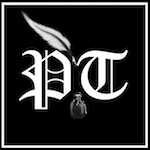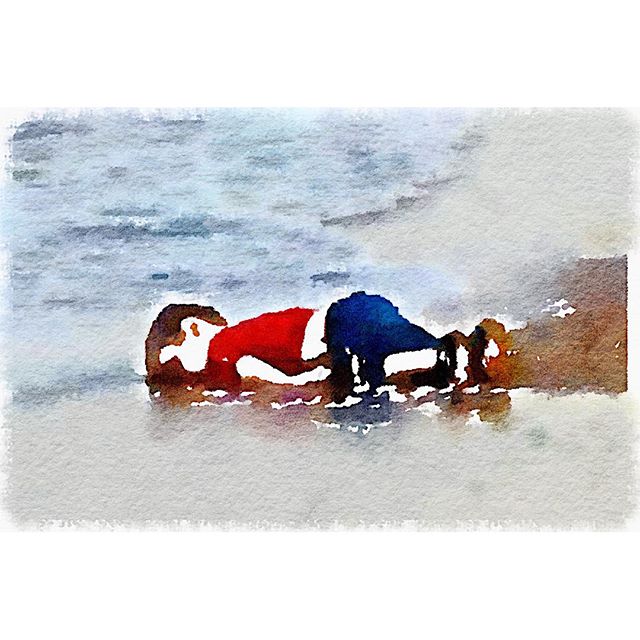A mourning sun cries as she tucks away
the night to uncover red and blue
slumps of fabric and skin on gritty sand below.
Brazen tides return to grasp at the shore,
but the boy lies still in darkened, sodden clothes.
They cling to what is pale and small,
he who was delivered into lullabies dissolving
screams and bullets into the haunted night,
forced to flee from a sea of violent red
to the turbulent sea of blue.
I think of him and grieve —
still.
Aylan Kurdi was a three-year-old Syrian boy of Kurdish descent who drowned on September 2, 2015 while trying to reach the Greek island of Kos by boat. Of his four-member family, only his father survived the journey. Published images of Aylan’s body brought swift attention to the ongoing Syrian refugee crisis and Syrian Civil War, resulting in international calls for action. More than 12.8 million Syrians have been driven out of their homes due to civil conflict, with over 6.7 million Syrians forced to flee the country and 6.1 million people who remain internally displaced.
The world’s response in 2015 to Aylan’s story was one of outrage and wracking grief. Of the many themes that emerged from subsequent discussion, it was a sense of fractured moral duty to one another that prevailed. Days after the photo of Aylan was released, The New York Times published an opinion piece titled, “Who Failed Aylan Kurdi?” A Los Angeles Times article printed soon after seemed to answer with the headline, “How the World Failed Aylan Kurdi.” The sentiment implies and emphasizes a shared responsibility that comes with simply being part of humanity. Close to five years later, the most charging elements of Aylan’s story persist in our politics and our policies within, at the edge of, and beyond our borders — a fight for human dignity.
Our work in medicine gifts us a unique vantage point of the human experience. Without diminishing the spectacular beauty of diversity, our patients remind us that we as people are intrinsically more alike than different — in both body and spirit. As today’s medical students, we are tomorrow’s physicians and leaders; we cannot deny the context in which we have taken on this role. Apathy and inaction toward global crises threaten to allow this sense of communal failure to persist, or worse, for us to become numb to its weight.
This topic is one I feel strongly about. While living in Melbourne, Australia in 2015, I participated in research on Australian immigration policies and focused on the Australian government’s treatment of refugees and asylum-seekers detained on the nearby island of Nauru. The first time I saw Aylan’s photo, I was on my way to a local primary school in a predominantly immigrant neighborhood with a large refugee population. Almost all of the children I worked with as a teacher’s aide were either refugees themselves or born to refugees, barely older than Aylan. This made his story and the ongoing events especially gut-wrenching to process.
What is happening outside our clinic doors will inevitably find their way inside. It informs the weights our patients carry with them when they enter and after they leave. It constructs frames and walls that line our patients’ paths, bending and molding their determinants of health and well-being. Each of us fills the space of many roles in our communities, but we are all humans first. As those given the honor of intimately entering others’ narratives in the name of protecting the body and mind, it is beyond our business but our moral duty to pay attention, speak up, and proactively defend threats to human rights and life when we see them. If we do not address what is happening outside our clinic doors, we are not adequately caring for the people sitting inside on the examination tables in front of us.
 Poetry Thursdays is an initiative that highlights poems by medical students and physicians. If you are interested in contributing or would like to learn more, please contact our editors.
Poetry Thursdays is an initiative that highlights poems by medical students and physicians. If you are interested in contributing or would like to learn more, please contact our editors.
Image credit: Aylan Kurdi Made in #waterlogue (CC BY 2.0) by robertsharp

